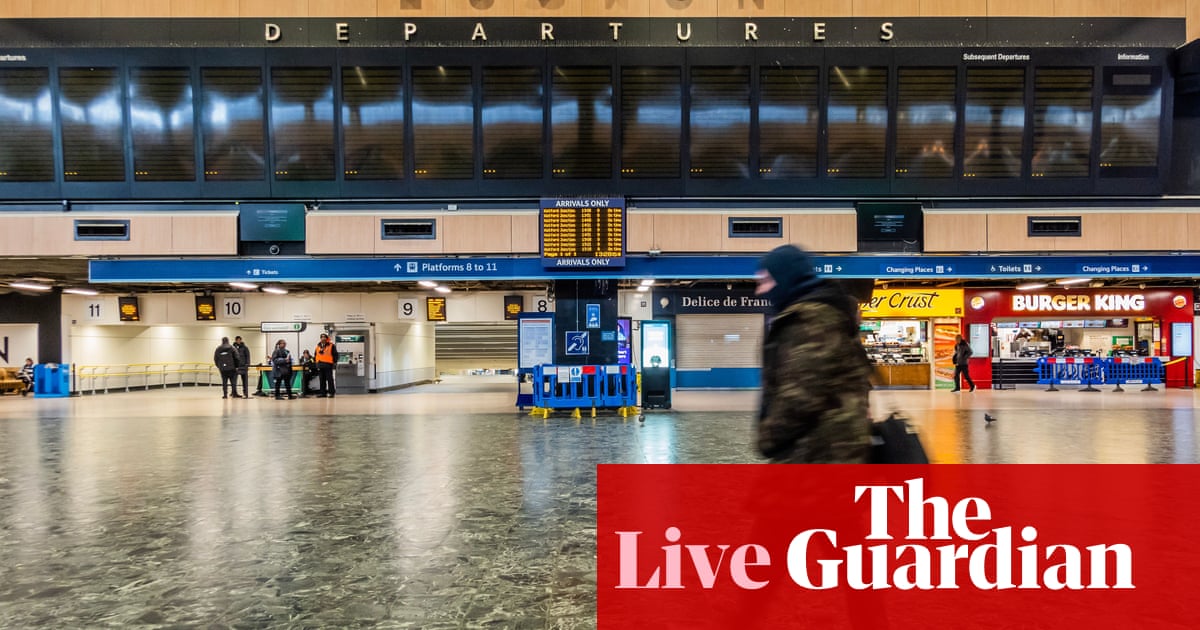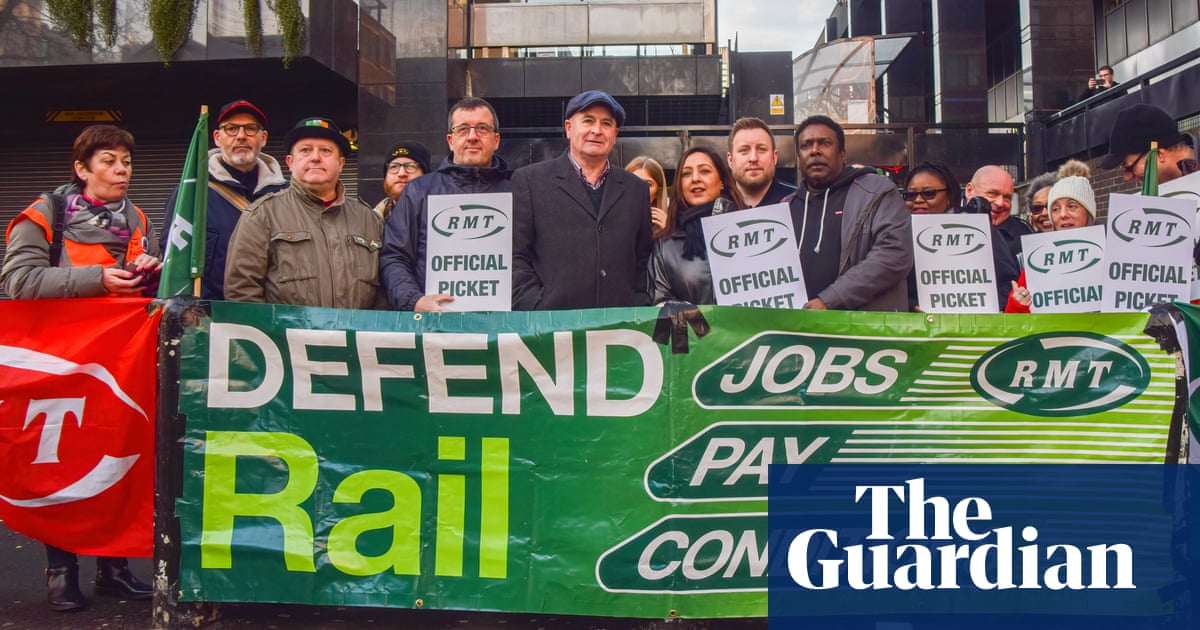
Talks to resolve the rail dispute have yet to start discussing pay, according to union leader Mick Lynch, dampening hopes of a breakthrough before more strikes are called.
The RMT’s general secretary said the union was still negotiating to avoid redundancies and cuts to maintenance work before they would tackle pay.
Speaking to MPs on the Commons transport select committee on Wednesday, Lynch said that train operators had not improved their offer in 18 months and had no incentive to increase pay to avoid strikes in a “corrupt system”.
He said that the only offer the RMT had received from Network Rail was effectively an 8% rise over three years rather than two, with inflation currently at about 10% – and something the industry “knew was not going to fly”.
He said industry proposals to change working conditions would “sink without trace” if the union had put them to a referendum of staff, as the industry and some MPs urged.
Earlier, Network Rail’s lead negotiator, Tim Shoveller, told the committee that he was “continually hopeful” for an agreement, and that there had been a “slight change” in talks held this week, with “conversations that we have not had for a while”.
On the first two Saturdays of last month, about 40,000 RMT members across Network Rail and 15 train operating companies held the latest in a series of strikes.
Lynch said train companies did not lose money during strikes, only the staff, as they were protected by the Department for Transport contracts. He said: “They suffer no loss and the DFT and Treasury pays them … That’s why we believe they are taking so long to come up with proposals.”
Grilled by MPs over whether the union was resisting change, Lynch said: “The railway does need fundamental change, but it’s not the one that the railway companies are seeking.
“We need a railway that runs in the interests of the people and the interests of the economy and the environment not in the interests of First Group and others,” he said, referring to the owners of Avanti West Coast.
“We need fundamental change – but we don’t need to attack the staff.”
While Lynch agreed that train companies profit margin was “quite low” at about 2%, he said the companies had no risk. “If there’s billions of pounds in circulation, that is quite a comfortable living. If I was getting 2% of all railway income, I’d be doing quite well. Normally businesses have to put capital at risk.
“I think it’s a cartel of people that are working with the government. No matter what their reputation is in this industry, the government will keep paying them.”
The DfT recently extended Avanti’s contract by six months despite months of cancellations and a much reduced timetable causing severe disruption for travellers between major cities including London, Birmingham, Manchester, Liverpool and Glasgow.
Richard Scott, director of corporate affairs for Avanti’s owner, the West Coast Partnership, said it was “absolutely focused on making things better … to provide a robust, sustainable service”. He said that there would be a “significant stepping up” of the schedule from December.












